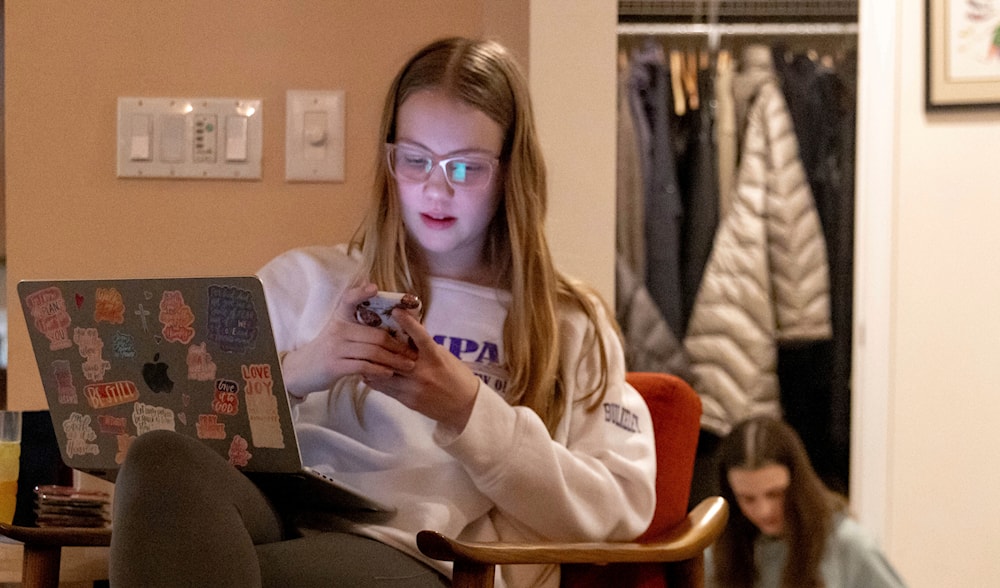Half of UK youth would give up the internet: Survey
A new study highlights growing concern among British teens over online safety, mental health risks, and the addictive nature of social media platforms.
-

Kate Bulkeley uses her phone to print textbook pages while her friend packs art materials ahead of a ski vacation, on Friday, Feb. 16, 2024, in Westport, Connecticut. (AP)
A new study conducted in the United Kingdom has revealed growing discontent among young people with the digital world, highlighting the profound impact of internet use on youth mental health and social media habits. The findings suggest that nearly half of the respondents aged 16 to 21 would rather grow up without the internet.
Commissioned by the British Standards Institution, the survey polled 1,293 individuals between the ages of 16 and 21. It found that 46% of participants said they would prefer to be young in a world without the internet, reflecting increasing concerns over the psychological toll of online life.
The study further revealed that nearly 70% of respondents reported feeling worse about themselves after using social media platforms. One in four admitted to spending over four hours a day on social media apps, with many expressing support for limitations on digital access.
The research draws a connection between social media and teen well-being, with a significant number of respondents acknowledging harmful patterns. Approximately 68% said their online behavior had negatively affected their mental health, and 75% reported spending more time online since the COVID-19 pandemic.
These figures underscore broader concerns around the role of platforms such as Instagram and TikTok in shaping young people’s self-image, sleep patterns, and social development.
Support grows for a digital curfew in the UK
The idea of a digital curfew is gaining traction, with 50% of surveyed youth supporting a ban on certain apps after 10 p.m. The UK government is reportedly exploring such measures, with Tech Secretary Peter Kyle suggesting that mandatory cut-off times for high-engagement platforms may be under consideration.
The study also sheds light on concerning online behaviors. Around 42% of respondents admitted to lying to their parents about their internet activity, while the same proportion said they had misrepresented their age online. Additionally, 40% reported using burner or decoy accounts, and 27% confessed to impersonating someone else entirely.
Alarmingly, 27% of youth said they had shared their location online with strangers, raising red flags about online safety for children and the effectiveness of current safeguards.
Rani Govender, policy manager for child safety online at the NSPCC, warned that digital curfews alone are insufficient. “A digital curfew alone is not going to protect children from the risks they face online,” she said. “They will be able to see all these risks at other points of the day and they will still have the same impact.” Govender emphasized the need for safer, less addictive online environments.
Andy Burrows, CEO of the suicide prevention charity the Molly Rose Foundation, echoed these concerns. “It’s clear that young people are aware of the risks online and, what’s more, they want action from tech companies to protect them,” he said.
Burrows warned that algorithm-driven content can quickly pull youth into harmful material, stressing the urgent need for laws that prioritize user safety.
Read next: New Zealand plans under-16 social media access ban

 3 Min Read
3 Min Read










